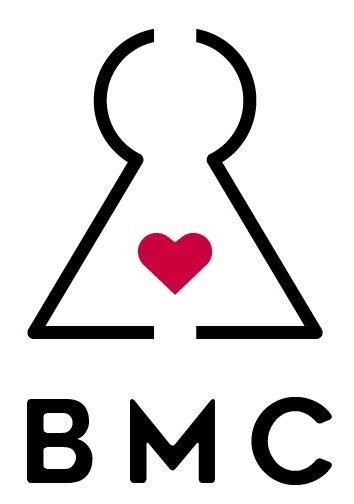How life coaching can enhance counseling practices in schools
Image created by Canva
In today's world, access to knowledge is no longer restricted to school walls. With the emergence of advanced AI technologies like Chat GPT, everything we need to know is at our fingertips. Consequently, schools are evolving beyond knowledge transmission and are now focusing on imparting essential life skills. Leading schools are integrating well-being, mindfulness, SEL, and life coaching, emphasizing the development of students' inter-personal and intra-personal skills.
I have written a few articles before on how I have used some of these approaches in my classroom (you can explore more on clicking on these links for mindfulness, and NVC). Inspired with the results I got with my students using these approaches, I reached out to my peers from the BMC Academy to get their inputs on how they use their newly acquired coaching skills in the field of education.
In this article we will particularly focus on how life coaching skills can enhance the effectiveness of counselors and benefit students.
1. How do we define life coaching ?
Over the past years, especially during the pandemic, we have heard a lot of people changing their job to work online and becoming a coach, some improvising themselves as such, others going through rigorous training.
The style of coaching we are talking here is based on the The International Coaching Federation (ICF) * definition:
“The ICF defines coaching as partnering with clients in a thought-provoking and creative process that inspires them to maximize their personal and professional potential. The process of coaching often unlocks previously untapped sources of imagination, productivity and leadership.”
photo by Cytonn Photography
2. How can adults support students with life-coaching skills?
Coaching competencies according to the ICF are described in details in the following page: https://coachingfederation.org/credentials-and-standards/core-competencies
For the sake of this article, let’s extract certain elements of these competencies that are relevant in a school setting:
Active Listening:
Active listening involves paying attention to what the student is saying and not saying, without judgment, creating a safe space to encourage them to share more. This can help build rapport and understanding between the adult and the student.
Powerful Questioning:
Powerful questioning can help students analyze their issues and come to their own conclusions. Adults can use powerful questions to help students identify their strengths, weaknesses, needs and wants, goals and values.
Goal Setting:
Goal Setting is about helping students articulate their dreams and aspirations into specific, measurable, achievable, relevant and time-bound goals. Adults can help students break down their goals into manageable steps and provide support every step of the way.
Reflection:
Reflection is essential in the coaching process. Adults can encourage students to reflect on their successes and failures, help them celebrate their achievements and provide feedback on areas that need improvement.
Accountability:
Accountability is a critical component of coaching. Adults can help students stay on track by holding them accountable for the actions they committed to in pursuit of their goals. By doing so, adults can help students develop accountability skills that can benefit them in all areas of their lives.
Emotional Self-Regulation:
Emotional self-regulation is about helping students manage their emotions during challenging situations. Adults can model it by regulating their own nervous systems, for example when responding in a non-reactive ways to students, even when their buttons are pushed. They can also share mindfulness practices with their students. By doing so, students can learn to handle stress better, be more resilient, and have improved mental health.
photo by Markus Winkler
3. Direct application of life coaching skills in counseling
Let’s dive now into a concrete example. We have interviewed Rosalyn Shih, college counselor at VIS@betterworld lab, and Experimental High School in Taipei. She shares her journey on including coaching skills in her counseling practice:
Rosalyn Shih
"I work with students to understand themselves, and to better identify their values, strengths, interests and goals.
I came from a professional admission consulting background in helping students gain admission to highly-selective US universities. Our company was oriented towards sending eligible students towards the highest-ranking institutions.
When I came to VIS, I noticed that my students had much more diverse goals in higher education -- not just in terms of destination county, but also professionally. We have students interested in careers in medicine, audio production, design, and sports. This diversity also opened up the opportunity to incorporate coaching techniques to help students draw greater clarity surrounding their post-high school goals.
Before I started the Coaching From Within** program, my approach to students working with students leaned more heavily on me giving them advice on how to better improve themselves. In our one-on-one meetings, I would ask students questions about their academics, extra-curricular interests, and goals, and then make recommendations about how they could help their applications look more attractive to admissions officers. I noticed I needed to change my approach when I realized that many students weren't following my advice, and started avoiding meetings -- perhaps concerned that I would admonish them for not meeting the goals I had imposed upon them.
After Coaching, I changed the way I worked with students to make it much more learner-centered. When booking an appointment with me, students now have to fill out a form that invites them to indicate their College counseling goals. I have both a drop-down menu for them to indicate priorities, as well as an open-ended comment box.
I've learned how to listen to the goals that the students set prior to the meeting. At the end of the meeting, I ask them to summarize their most important takeaways. I include their summary in my follow-up meeting notes to them.
I have moved on from giving advice, and this coaching approach also makes my job much easier -- students aren't encouraged to wait for the adults to make recommendations, and are inspired instead to find their own paths.
Finally, I encourage them to do further research and exploration outside of our meetings, before our next check in.
The coaching mindset has drastically changed the way that I work with students. I placed the ownership on them to define their own goals, (ie. Applying to an internship, choosing a list of schools in Australia to apply to) and set how they want to meet them. I also hope that this approach will help students set goals and strive to achieve them way beyond their college careers.”
She shares with us one concrete example on how she applied coaching with a student:
“This month, our high school seniors need to make decisions to decide which university they want to enroll in. Today's one student asked me Roslyn, if you were me, which school (of the two that gave him offers) would you pick?
I turned the question around and asked the student what were the most important values in choosing a university. I then invited him to say how each University stacked up according to his values.
What unfolded was a very long narrative in which the student shared his own articulate analysis of his available choices, paired with his gut reaction to a tarot reading.
It was very clear to me that the student had done his own research, and merely needed a container to process his ideas. I'm so proud of the inner wisdom that my students naturally have. Equipped with the skills of self-reflection and understanding, they will have so much learning ahead of them.”
Are you a counselor using mindfulness or coaching in your approach? Please contact us, we would love to hear from you on how you use those approaches in your practice.
You can also join me on the 3rd of June at the Connected Wellness Festival in Beijing for a session on "Mindful Teachers, Happy Students!":
* ICF stands for the International Coaching Federation, and is the leading global organization for coaches and coaching.
** Coaching From Within program is the flagship coaching program delivered by the BMC Academy, blending mindfulness with coaching. Contact us for more information.
Are you looking for a coach? BMC Academy trained coaches are there to support you using mindfulness-based approach. Visit our Coach Directory to schedule a chemistry call.








